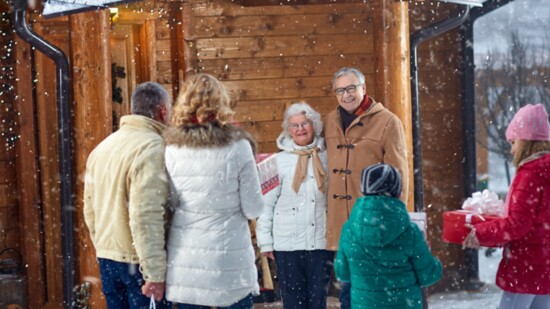As the holiday season approaches, giving the intangible gift of care and attention to our older adult relatives and friends becomes increasingly important. Family gatherings and community festivities provide an ideal opportunity to ensure their needs are met and assess any areas where they may require additional support. While joyous celebrations are abundant, our commitment to their well-being should remain a steadfast part of the holiday spirit. During visits, observing critical indicators of their living conditions, health management, and social engagement can be vital.
Some of the things to look for when visiting are:
1. Evaluating household conditions and personal hygiene is essential. Is the home cluttered or in need of repairs? Are individuals showering regularly, wearing clean clothes, and dressing appropriately for the weather? These factors can signify a need for increased assistance in and around the home. Improving these aspects can reduce the risk of falls and enhance overall health and living conditions.
2. Are medications and supplies stored in a central location or scattered?
Do individuals clearly understand when and why they are taking their medicines? Do the expiration dates on the bottles match the quantities and prescription schedules? Medication mismanagement is one of the leading reasons why older adults require hospitalization.
3. Pantries and refrigerators can provide insights into an older adult's healthiness. A shortage of essentials or excess expired items may signal cognitive decline, hoarding behavior, or feeling overwhelmed. Proper nutrition and hydration are essential, especially with the cold and flu season approaching.
4. The trash is connected to point #3. If their cabinets appear understocked yet claim to use pre-made or delivered meals, is there any evidence—such as containers or leftovers—that supports their statement? It is essential to examine whether the presence of these items aligns with their claims regarding nutritional well-being.
5. Social engagement is vital for maintaining essential cognitive health. When someone disconnects from church, friends, or exercise, it may suggest they are struggling to leave home due to anxiety about driving, cognitive issues, or depression. Self-isolation can signal a need for support, as isolation does not equate to independence.
By offering the gift of caring for our senior family members, we can make a significant difference in maintaining their safety, health, and independence, ensuring they feel supported, cherished, and included throughout the festive season. It's never too early to be proactive and create a plan. Transitions For Senior Living is a FREE service that assists seniors and their families in finding appropriate care and support when a loved one struggles to live independently without assistance.
For more resources and information visit transitionsforseniorliving.com
By offering the gift of caring for our senior family members, we make a significant difference in maintaining their safety, health, and independence, ensuring they feel supported, cherished, and included.
